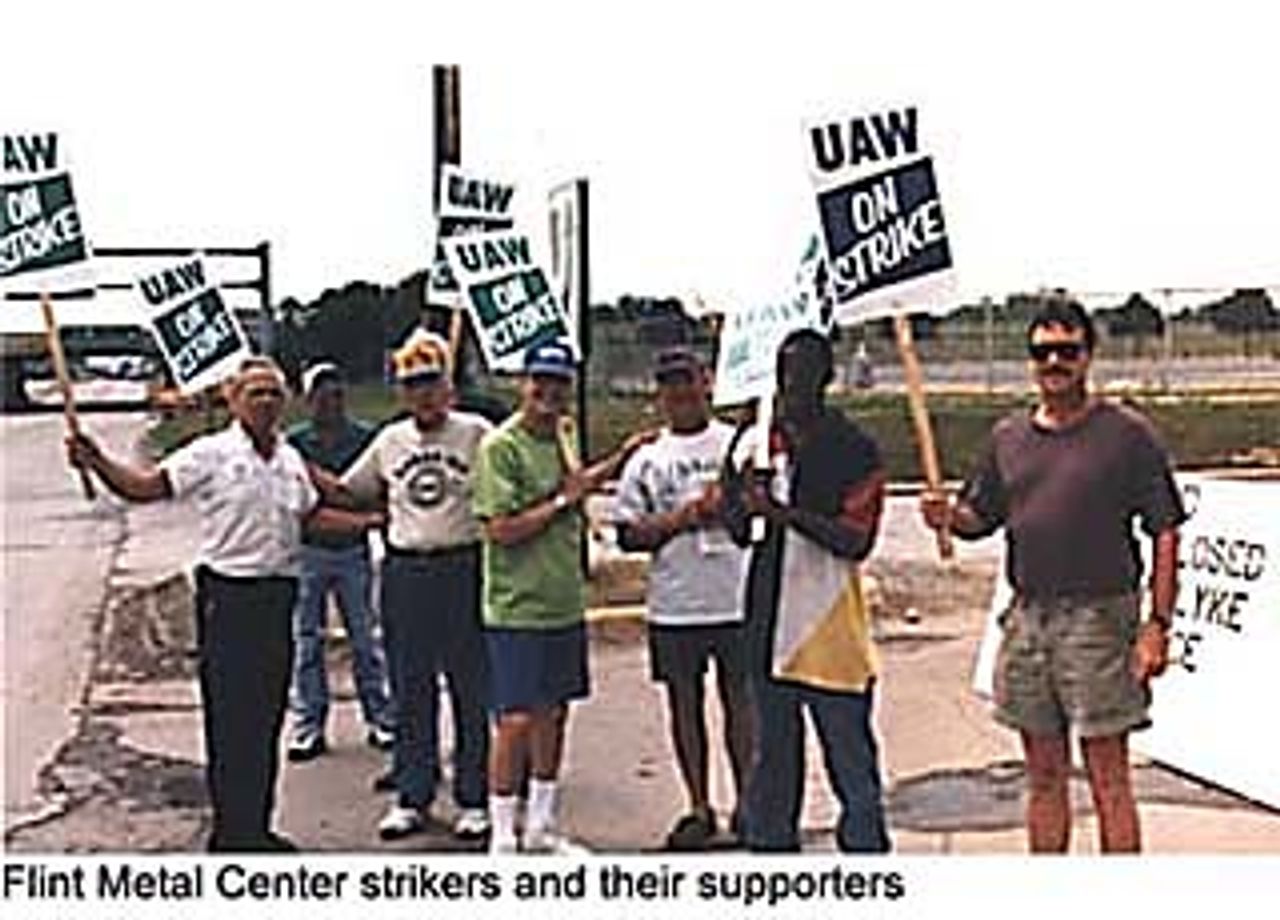 General Motors workers at two brake plants in Dayton, Ohio voted Tuesday to authorize a strike against the automaker despite threats from local management that a walkout would imperil their jobs. The 3,400 Delphi Chassis Systems workers, members of United Auto Workers Local 696, voted by an 80 percent margin to give local union officials authorization to call a strike against the outsourcing of jobs and the company's plans to cut the work force in half over the next few years.
General Motors workers at two brake plants in Dayton, Ohio voted Tuesday to authorize a strike against the automaker despite threats from local management that a walkout would imperil their jobs. The 3,400 Delphi Chassis Systems workers, members of United Auto Workers Local 696, voted by an 80 percent margin to give local union officials authorization to call a strike against the outsourcing of jobs and the company's plans to cut the work force in half over the next few years.
Workers at the two plants struck for 17 days in 1996, leading to the shutdown of GM's North American operations and the idling of 177,000 workers. The UAW called off the strike just as the auto maker's operations were grinding to a halt. It accepted an agreement that union officials called a 'victory' for job security. Within a year, however, the company announced plans to close one of the two plants.
GM operations in the US, Canada and Mexico have once again been paralyzed, this time as a result of strikes in Flint, Michigan which began on June 5. According to a GM filing with the US Securities and Exchange Commission, the current strike is the costliest since the 67-day national walkout in 1970. The company has to date lost $1.8 billion. GM officials said the losses will force a careful review of 'future spending on products and facilities,' a thinly-veiled threat to shut additional plants.
A column in the Detroit News Wednesday revealed that GM's directors are considering direct strike-breaking tactics if the walkouts do not end soon. Columnist Jon Pepper wrote, 'There are times when General Motors Corporation executives on the front line of the strike talk privately about hiring replacement workers...There are other times when tactical planning turns to hiring armed guards to enter the plants to get dies needed to make parts and ship them to an independent parts maker.'
However, Pepper said, the company has so far resisted the impulse to 'push the nuclear button that would raise casualties on both sides' and has instead used the threat of further plant closings and layoffs to 'win lasting peace.' GM's strategy to gain market share will work 'only if costs can be ratcheted downward, which requires union cooperation one way or another.'
Despite the strike authorization vote in Dayton and UAW threats to call other strikes, union officials have repeatedly expressed their willingness to assist the company in its cost-cutting drive. According to the Bloomberg News, the UAW on Tuesday agreed to let 300 more workers return to the struck Delphi Flint East complex to make parts for non-GM customers. This brings to 500 the total number of UAW workers who are inside the plant building oil filters, spark plugs and other parts for Ford, Chrysler and Harley-Davidson. A senior UAW official said the union and GM want to keep as many outside customers as possible, despite the strike.
'It's a sign to the business world that we don't want to cut off our noses to spite our face,' said Cal Rapson, a UAW regional director in Flint.
See Also:
Global changes in auto industry underlie struggle over jobs
[16 June 1998]
The merger between Chrysler and Daimler-Benz:
what it means for workers
[8 May 1998]
